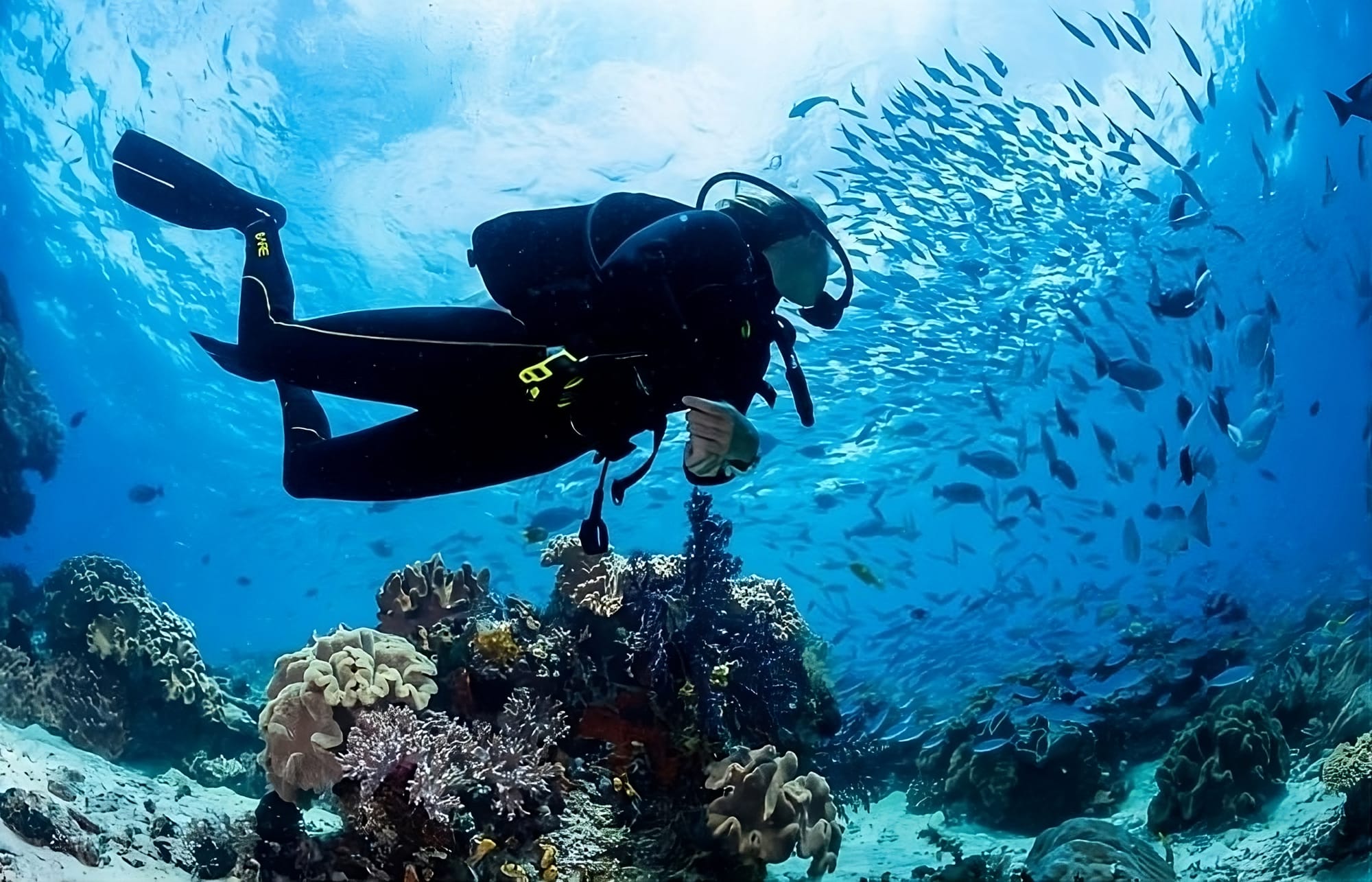The Ocean, Our Prized Possesion

Marine mega biodiversity! Today, we stood gratefully in the face of mother nature for our rich blue colossal resource, the ocean and the livelihoods it nourishes. Occupying the midst of the Pacific and Indian sea, more than 75% of Indonesia’s territory which consists of a total of 6.4 millions square meters! Granting Indonesia the title of biggest archipelago around the world. As the nation of islands, Indonesia possesses one of the world's longest coasts, as well as the most diverse coral and mangrove ecosystems. These ecosystems are assets that contribute to the nation's economy, prosperity, and resilience in measurable ways. It not only greatly nurtures aquatic lives, but also the lives in the land both financially and sustainable resource wise.
According to the website of the Secretariat Cabinet of the Republic of Indonesia, Indonesia's marine goal is to establish Indonesia as the “global maritime nexus”. The Indonesian government intends to establish a variety of measures to ensure that marine-based development runs smoothly which Indonesian government and society play an important part in this growth. However, the dream seems very distant when we look back and see what that actually matters. Overfishing and the destruction of coral reefs and mangroves, we are depleting the ocean faster than it can renew itself (WorldbankBlogs). 38% of the country's marine capture fisheries are overfished, and a large portion of the domestic small-scale fishing fleet is unmonitored and unregulated. Nonetheless, the grand calamity still awaits–it is precisely the bombardment of plastic pollution.
Cleaning up the water alone will not solve the problem of marine plastic pollution. Most marine plastics are not tossed directly into the sea, but rather come from land-based sources. They wind up in the sea for a variety of causes, including poor wastewater filtering, incorrect or illegal disposal, and unforeseen natural disasters. Land-based measures are therefore critical for combating marine plastic pollution. Because if not, the journey of beauty and wonders will end in vain and despairs.
Here, the Hemisphere project as youth pioneers of impactful actions, is willing to take any means to turn down the pollution, as well as provide measures within our reach to preserve our ocean. The tale of our ocean will go on.
The Hemisphere Project Team

